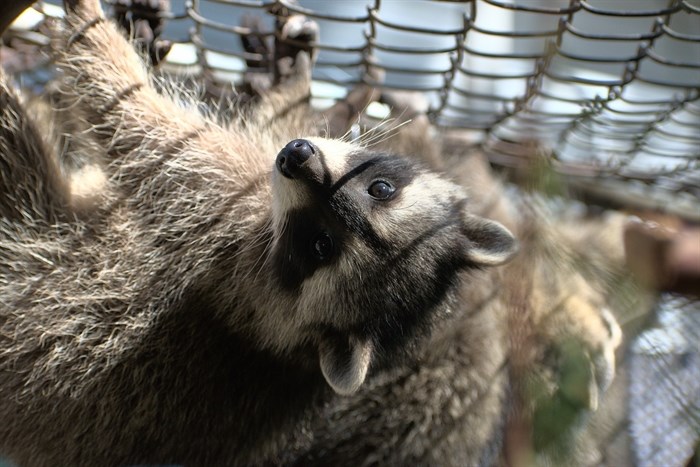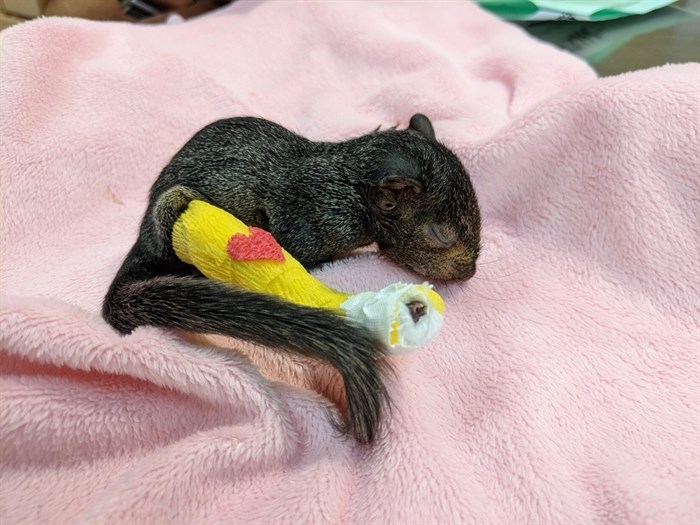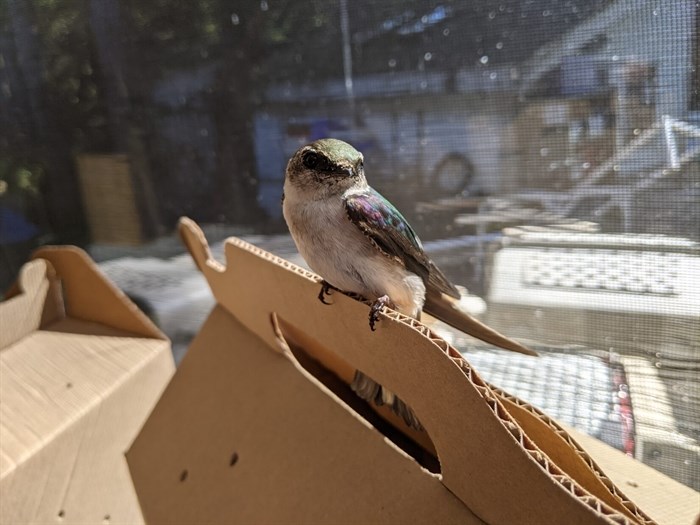
The BC SPCA Wild Animal Rehabilitation Centre treated over 3,000 orphaned, sick, or injured animals in 2021.
Image Credit: FACEBOOK/BCSPCA
January 16, 2022 - 6:04 PM
The B.C. SPCA Wild Animal Rehabilitation Centre had one of its busiest years yet treating orphaned, sick or injured animals in 2021.
The centre is a standard animal hospital on a 10-acre property in southern Vancouver Island that works in correlation with other rehabilitation centres in the province.
Last year, 3,128 patients were treated in the centre. Of the animals treated 67% were birds, 33% were mammals and fewer than 1% were reptiles.
The centre treats about 137 different species of birds, from hummingbirds to bald eagles, and small mammals including squirrels, otters, rabbits, raccoons and deer fawns.
“The idea is to have the animals come into our care in the hope that we can rehabilitate them so they can be released back into the wild,” Wild ARC manager Ginelle Smith said. “It doesn’t always go that way, sometimes they don’t make it, but that’s the intention. We don’t have a permit for captivity, and we’re not interested in that.”

Image Credit: SUBMITTED/BCSPCA
The majority of patients the centre treats are birds.
“When the baby season hits, it gets real loud around here with constant tweet, tweet, tweet,” Smith said.
Since Smith started at the centre two years ago, admissions have continued to increase each year.
“Numbers increased between 100 to 200 within the last two years, it’s been the busiest it’s ever been. It’s a lot, and the animals that we get are high maintenance,” Smith said.
It takes multiple staff or volunteers to work with each of the animals, as a bald eagle can take up to three people to handle, Smith explained.

Image Credit: SUBMITTED/BCSPCA
Due to safety concerns, staff only treat deer fawns. They rehabilitate them for a couple of months, teaching them how to live on their own and release them by October.
“I’d love nothing more than to have a team that could go out and does that, but we can only take in deer fawns when they are really young,” Smith said. “They can’t handle being in a captive environment, they are highly stressed animals, so we only get them when they are itty bitty babies.”
Right now, the centre is coming out of raptor season and treating many owls, hawks and eagles for injuries.
It’s difficult to pinpoint an average amount of time an animal would stay in the centre's care as each situation is different and treatment depends on the status of the animal, and the reason it came into the centre.
READ MORE: Hummingbird helpers in southern B.C. having tough week thanks to frigid weather
Animals are not typically kept over the winter. However, the team does what is best for the animal.
Occasionally, raccoons are kept for longer periods to get up to proper weight while they learn how to feed and hunt. Eagles can also be kept for longer durations so they can learn how to fly again.
“We try to release them in the fall as much as we can, but sometimes they have to be kept over the winter because of their status,” Smith said.
In her experience, the animals that have taken the longest to rehabilitate are otters. They can take nearly a year to treat before they can be released.
In 2021, nothing surprising came into the centre for treatment, but there was a unique case with a beaver.
“It had to have an eye amputated, but we were able to release her with one eye a few months ago,” Smith said. “We get beavers once in a while, but this was a touch and go case.”
Last year, a couple of great blue herons also came in for treatment.
“We love having them, we don’t get them very often,” Smith said. “That is an extremely high maintenance wild animal to care for. They really don’t like people, which is great because that’s what we want, but wow, they are aggressive.”
Currently, the centre is preparing for the spring and summer seasons of caring for animals by recruiting volunteers.
Due to the pandemic, the centre has had to decrease the number of volunteers who can help out in the facility with the increase of patients.
Last year, the centre had 216 volunteers who donated over 20,000 hours.
“Numbers were lower than usual, and it was very tough to deal with the admissions,” Smith said.
To contact a reporter for this story, email Emily Rogers or call 250-718-0428 or email the editor. You can also submit photos, videos or news tips to the newsroom and be entered to win a monthly prize draw.
We welcome your comments and opinions on our stories but play nice. We won't censor or delete comments unless they contain off-topic statements or links, unnecessary vulgarity, false facts, spam or obviously fake profiles. If you have any concerns about what you see in comments, email the editor in the link above.
News from © iNFOnews, 2022